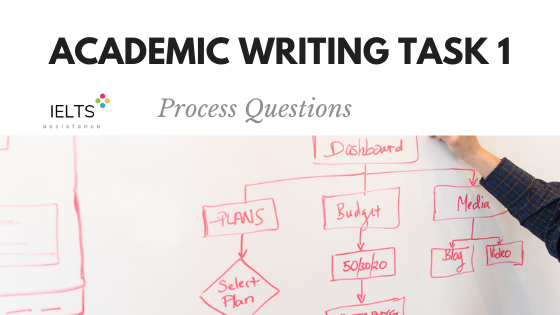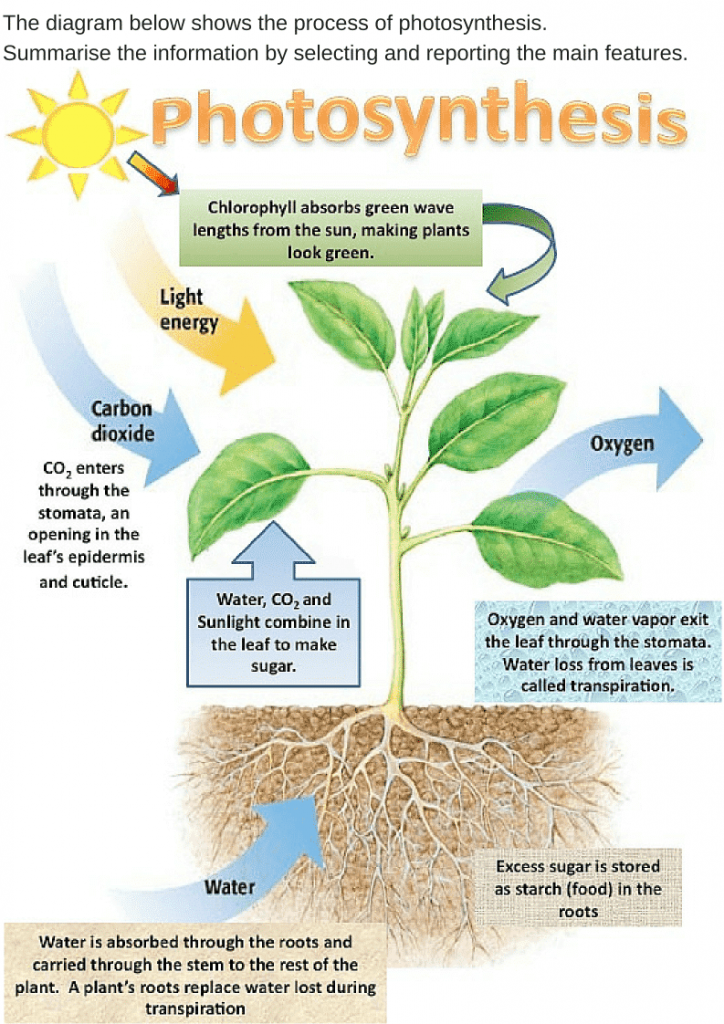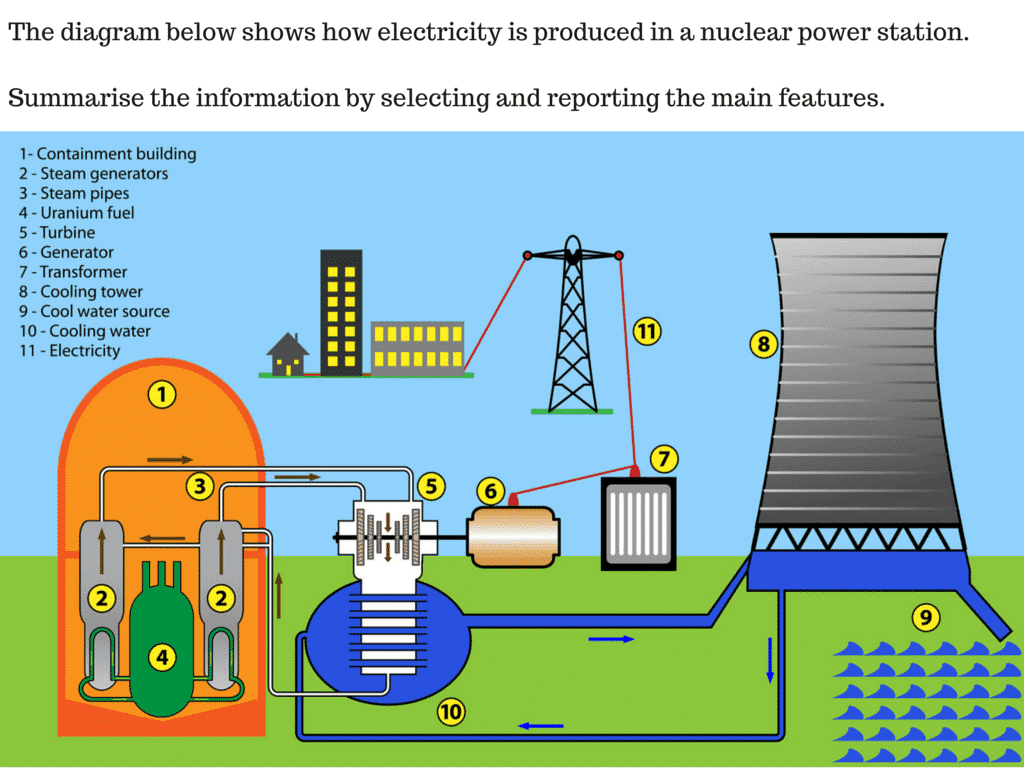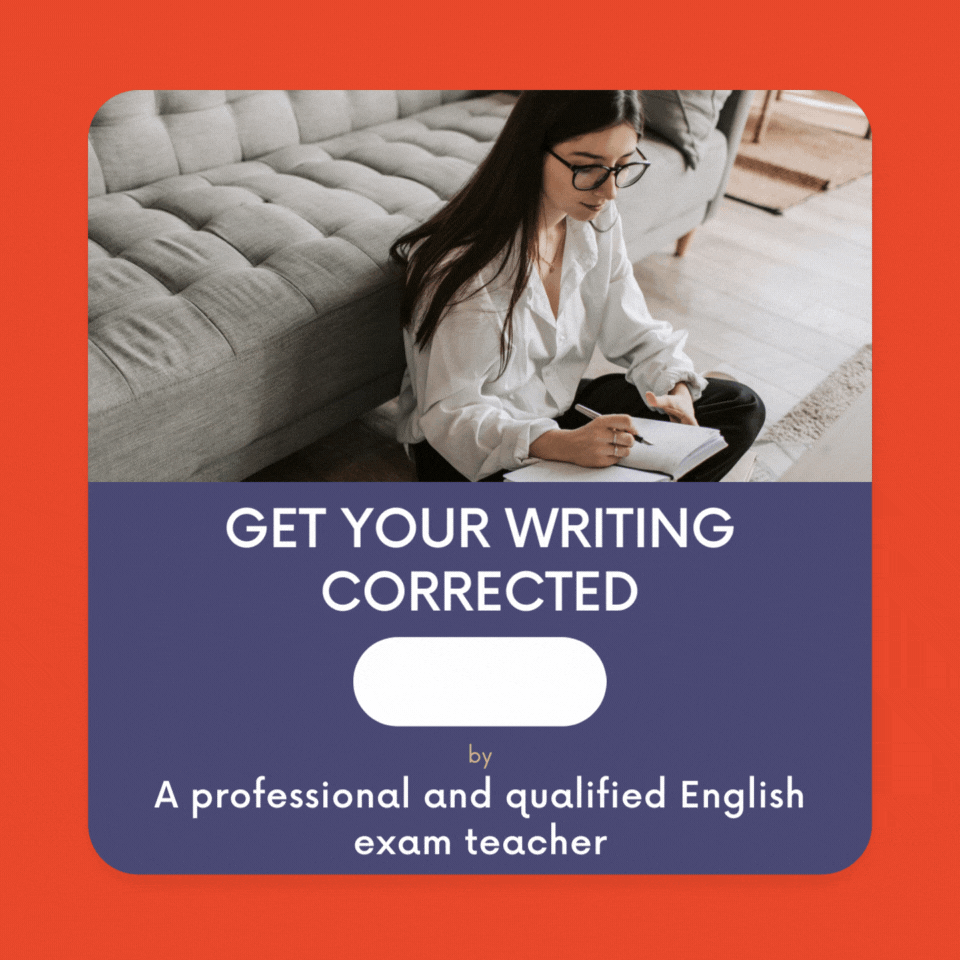Academic IELTS Writing Task 1
Process Questions

Overview
We will have a look at the following parts:
- What are the different types of process questions
- How to write a Writing task 1 process question
- How to write the introduction
- How to write a general overview
- How to write in-depth analysis
- How to sequence your language
- Check your writing
- Example answers for 2 process questions
In academic writing task 1 it is possible that you need to describe a process. Even Though they are not as popular as charts and graphs, they are more common than maps. Like map questions, these type of questions are most of the time not covered in an IELTS course, due to lack of time most teacher just focuses on charts and graphs. As with map questions they are not so difficult to learn, but you do need to know how to tackle them.
What are the Different Types of Process Questions
There are two different types of process question:
- A natural process includes for example the life cycle of animals like a butterfly or frog; the pregnancy cycle, the water cycle, or how cows produce milk.
- A man-made process includes things like how coffee/tea/beer/wine/cheese are made; how cement or bricks are produced or how the internet works.
To be successful in the task it doesn’t matter if it is natural or man-made, both follow the same structure and principles.
The natural process of photosynthesis

Man-made process of nuclear power generation

How to Write an IELTS Writing Task 1 process question
As in all the tasks there are different steps to take:
To analyse this more closely, we’ll look at the following example:
The diagram below shows the process of photosynthesis.
Summarise the information by selecting and reporting the main features and make comparison where relevant.
Write at least 150 words.
Read the question
As in all the Academic writing task 1 questions (graphs,processes and maps), when reading the question underline the keywords and immediately write down some synonyms for the key words. You will need those synonyms to praphrese your question in the introduction .
Looking at the example:
The diagram below shows the process of photosynthesis.
This is the main part of the question, which is always different from question to question. It provides information on the process itself. This is the sentence you will have to paraphrase as your introduction.
Summarize the information by selecting and reporting the main features and make comparisons where relevant. Write at least 150 words.
This part is always the same for any Academic writing task 1 process question, you need to:
- Summarize the information: this means you do not need to write about everything, you only have 150 to 200 words to write about this. It will be impossible to write about everything. Just focus on the things that you notice at first glance.
- Report the main features: Have a look at the process and just write about the most important parts of the whole process. You do not have to write about every detail, as stated above you only have 20 minutes to write 150 words.
- Make comparison: Here comparison is not as important as with graph and map questions, for both those questions you will have to compare different things. You can compare things, if you do find something to compare, but in process questions it is more important to just report the information.
- Write at least 150 words: This is the minimum of words you need to write, anything below 150 words will get your a lower grade.
Synonyms for the key words
- The diagram: the picture, the illustration, the process
- Shows: illustrates, depicts, represents, describes
- Process: mechanism, system
If you now use these synonyms to rewrite the first part of the question, you have your introduction and first paragraph to the task. If you have some issues with vocabulary have a look at our vocabulary lessons.
Analysing the Process
One of the most challenging things about these questions is having to write about something you have never seen or heard of before. We would even say it might be more complicated than writing about a graph or a map. The main difference is that you do not need to focus so much on comparing information, but rather summarizing and reporting it. Just don’t worry and try to remember two things.
First, the examiner knows that you have probably never seen this process before and you have only 20 minutes to write about it. They do not expect a perfect answer. Just pick out the main features and report them accurately.
Second, you can quickly understand any process by asking yourself these questions:
- Where does the process start and where does it end?
- How many stages are there?
- Is it a man-made process or natural process?
- Is it a cyclical (in a circle) or linear (one start point and one endpoint) process?
- Are there any materials that need to be added to the process?
- What is produced?
- What does each stage of the process do?
- What are the relationships between each stage?
When you do ask yourself these questions, do not forget to take some notes, or circle the important information on the picture. Overall, the processes you will be asked to write about in the IELTS test will not be very complicated and you should be able to easily answer all of the questions above. When you do this you will completely understand what is happening and you will be able to start writing your answer.
Write your introduction
Every Academic writing Task 1 question follows the same format. First it tells you some general information about the question, in this case a process, and then it instructs you to summarise the information by selecting and reporting the main features.
For example:
The diagram below shows the process of photosynthesis.
Summarise the information by selecting and reporting the main features and make comparison where relevant.
Write at least 150 words.
The diagram below shows the process of photosynthesis.
This is the general information which you need to paraphrase as your introduction.
Summarise the information by selecting and reporting the main features and make comparison where relevant. Write at least 150 words.
These are the instructions of what you need to do, which are almost always the same in any Academic writing task 1.
Now, we paraphrase the sentence by rewriting it so that the words are different but the meaning stays the same. There are a few different ways we can do this but the easiest way is to use synonyms and change the word order of the sentence.
Examples:
Question 1: The diagram below shows the process of photosynthesis.
Paraphrased: The provided illustration demonstrates how plants produce energy from sunlight.
Question 2: The diagram below shows how electricity is produced in a nuclear power station.
Paraphrased: The given illustration demonstrates the process of how nuclear power plants generate electricity.
Every time you see an Academic writing Task 1 question rewrite the question and this should be your first paragraph. We can now move on and write our next paragraph, the general overview.
General Overview of Process
The general overview is an essential part of the whole essay. If you do not write a general overview it is extremely difficult to get a high score on your Academic IELTS Task 1, however, if you learn how to write a good one, you are far more likely to get the score you need.
The general overview for process questions can be done quite easily by asking yourself the following few questions:
- Is it a man-made or natural process?
- How many stages are there?
- What is produced?
- Where does it start and where does it end?
- Is it cyclical or linear?
- Are any materials added?
Do not expect to answer all of these questions for each process question, but you will always be able to answer enough of them to be be able to write a general overview. Finally, the answers to these questions will allow you to write 2 overview sentences.

Let’s look at one of the previous examples:
- Is it a man-made or natural process? Natural
- How many stages are there? Five
- What is produced? Sugar, oxygen and starch.
- Where does it start and where does it end? Starts with sun and ends with the production of sugar, oxygen and starch.
- Is it cyclical or linear? Linear.
- Are any materials added? Sunlight, CO2 and water.
Now we can then use the answers to make two sentences for your general overview:
Photosynthesis is a natural linear process beginning with sunshine and carbon dioxide being absorbed and finishing with the production of sugar, oxygen and starch. There are five main stages in this process, allowing plants to convert light energy to chemical energy in the form of sugar.
Let’s look at the other example:
- Is it a man-made or natural process? Man-made
- How many stages are there? Don’t know, not very clear????
- What is produced? Electricity
- Where does it start and where does it end? Starts with uranium fuel and ends with electricity being sent to the grid.
- Is it cyclical or linear? Linear
- Are any materials added? Water and uranium
This results in the following general overview:
This is man-made linear process starting with uranium fuel and water creating steam which ends with electricity being sent to the grid. Overall, there are several stages including steam production, turbines driving a generator and a transformer creating electricity.

These questions and answers can be used for any process question and allows you to produce a clear general overviews each time. We can now move on to detailing each stage of the process in our next paragraphs, the in-depth analysis.
In-depth analysis
Now that we have paraphrased the question and provided a general overview we need to write about each stage in more detail, you can:
- Say what each stage does
- What does it produce
- Are there any materials added
- and/or discuss the relationship with the previous or subsequent stages.
Let’s detail each stage for the first process.
First of all, chlorophyll allows the plant to take in sunlight along the green spectrum and carbon dioxide is absorbed through openings in their surface. At the same time, water is sucked up through the roots and this is combined with CO2 and the sun’s rays to produce sugar that can be utilised by the plant for food.
Next, the byproducts of this chemical reaction are oxygen and water which are extracted through transpiration. In this process water evaporates from the leaves and O2 is released. Finally, any extra sugar is deposited in the roots as starch.
Firstly, heat is created by uranium fuel in the steam generator and this water vapor flows through pipes to a turbine. Next, the steam causes the turbine to spin and in turn powers a generator subsequently creating electricity.
After that, electricity from the generator is transferred to a transformer where the electricity can be changed to a form that is ready to be sent to the grid to power houses and factories. Meanwhile, hot water makes its way to a cooling tower, condenses and then returns to the turbine or might flow into the cold water source.
Like in any Academic IELTS writing task 1 it is far easier to split your in-depth analysis, or the body of your writing into 2 separate paragraphs. Separating the process into 2 parts makes it easier to understand and easier to write about. Though, not all processes have two distinct parts, most of the IELTS questions can be treated in this way, which is in line with the 4 paragraph structure of all Academic IELTS writing tasks.
Sequencing the Process
Since you need to write about a process which has different stages, you will need to sequence these stages by using linkers/connectors. This will make it easier for the examiner to read and understand the process. Additionally, it is a crucial part to score well on your cohesion and coherence by making your details easier to read through using connectors/ linkers of sequencing.
You could use some of the following linkers/connectors:
- Firstly
- First of all
- Secondly
- Third
- Thirdly
- After that
- Next
- From this
- Where
- Following that
- Subsequently
- Before that
- In turn
- Then
It is essential that you know the meaning and grammar of the words and phrases above before you use them. Never just use words you do not fully know or understand, as this will result in mistakes and will bring your score down.
Checking your work
Finally when you are done with your writing, you should try to leave 2-3 minutes at the end to check and improve your work. Many students do not do this because they feel they do not have enough time. However, it is better to try and get everything done in 15 minutes and then check and refine your work. This should greatly improve your accuracy in turn improving your overall score.
Check for:
- Are there any spelling or punctuation mistakes?
- Are the verbs in the correct tense?
- Does the process I describe make sense? Does it match the diagram?
- Is there any vocabulary repetition we could change by using synonyms?
- Do I have 3 to 4 clear paragraphs.
- Did I write over 150 words?
- Have I included things only obvious from the diagram, or did I include things that I speculated?
- Have I included the main features in the overview?
Now you have finished your writing. Let’s put it all together and have a look at the examples:
Sample Answers
Example 1
The provided illustration demonstrates how plants produce energy from sunlight.
Photosynthesis is a natural linear process beginning with sunshine and carbon dioxide being absorbed and finishing with the production of sugar, oxygen and starch. There are five main stages in this process, allowing plants to convert light energy to chemical energy in the form of sugar.
First of all, chlorophyll allows the plant to take in sunlight along the green spectrum and carbon dioxide is absorbed through openings in their surface. At the same time, water is sucked up through the roots and this is combined with CO2 and the sun’s rays to produce sugar that can be utilised by the plant for food.
Next, the byproducts of this chemical reaction are oxygen and water which are extracted through transpiration. In this process water evaporates from the leaves and O2 is released. Finally, any extra sugar is deposited in the roots as starch.
(153 words)
Example 2
The given illustration demonstrates the process of how nuclear power plants generate electricity.
This is man-made linear process starting with uranium fuel and water creating steam and ends with electricity being sent to the electric grid. Overall, there are several stages including steam production, turbines driving a generator and a transformer creating electricity.
Firstly, heat is created by uranium fuel in the steam generator and this water vapor flows through pipes to a turbine. Next, the steam causes the turbine to spin and in turn powers a generator subsequently creating electricity.
After that, electricity from the generator is transferred to a transformer where the electricity can be changed to a form that is ready to be sent to the grid to power houses and factories. Meanwhile, hot water makes its way to a cooling tower, condenses and then returns to the turbine or might flow into the cold water source.
(150 words)
Now you should have a pretty good idea how to deal with Academic IELTS writing task 1, process questions. If you still need some help on the grammar and vocab, have a look at our grammar and vocab lessons. For any more questions feel free to leave a comment and we’ll help you with all your questions.
Get your writing and speaking corrected
Join the ever growing group of students who we helped on the road to success and get the professional help you have been looking for.
Useful Links
Writing Correction
Have one of our teachers look at your Writing Task and give feedback and correction within 24 Hours
Writing Task 1
Have a look at an overview of Academic IELTS Writing Task 1
Writing Task 1 Tips & Tricks
Have a look at some of the important tips and tricks to get a better score at Academic IELTS Writing Task 1
Writing Task 1 Grammar
Have a look at some of the grammar needed for Academic IELTS Writing Task 1
Writing Task 1 Vocabulary
Have a look at some of the vocabulary needed for the introduction and general overview of Academic IELTS Writing Task 1
Writing Task 1 Graphs
Have a look at how to deal with Graphs, how to analyse, structure, write,…
Writing Task 1 Graphs Examples
Have a look at some of the examples of Academic IELTS Writing Task 1 Graphs and see how other people deal with writing them.
Writing Task 1 Graphs Vocabulary Change
Have a look at some Graph Vocabulary to deal with Dynamic Graphs and Changes.
Writing Task 1 Graphs Vocabulary Numbers
Have a look at some Graph Vocabulary to deal with Graphs and Numbers.
Writing Task 1 Graphs Vocabulary Practice
Have a look at some exercises and practice some of the vocabulary used for Academic IELTS Writing Task 1 Graphs
Writing Task 1 Maps
Have a look at how to deal with Maps, how to analyse, structure, write,…
Writing Task 1 Maps Examples
Have a look at some of the examples of Academic IELTS Writing Task 1 Maps and see how other people deal with writing them.
Writing Task 1 Maps Vocabulary
Have a look at some of the vocabulary used for Academic Writing Task 1 Maps
Writing Task 1 Maps Vocabulary Practice
Have a look at some exercises and practice some of the vocabulary used for Academic IELTS Writing Task 1 Maps
Writing Task 1 Processes
Have a look at how to deal with Processes, how to analyse, structure, write,…
Writing Task 1 Processes Examples
Have a look at some of the examples of Academic IELTS Writing Task 1 Maps and see how other people deal with writing them.
Writing Task 2
Have a look at an overview of IELTS Writing Task 2 and how to deal with it.


